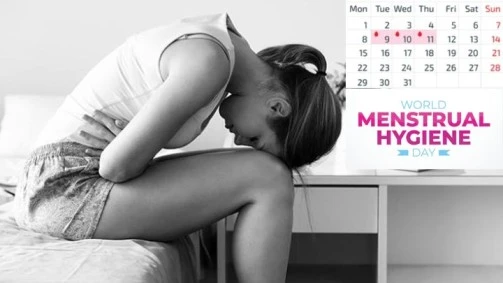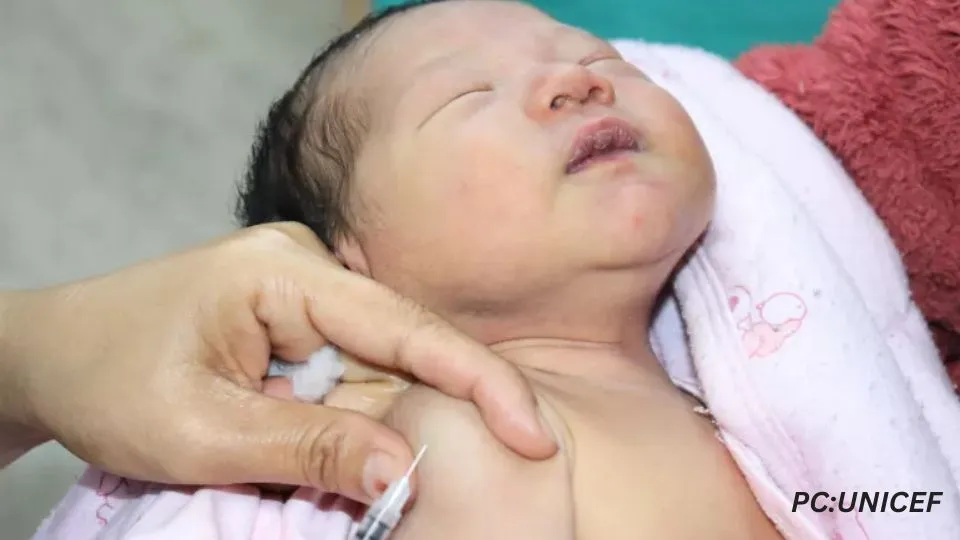WASH United, a German non-profit, started this initiative in 2013 and acts as its international secretariat in the present day. This initiative engages the government, individuals, non-profits, businesses, and the media to promote the health and hygiene of menstruating women.
The theme for 2024, #Periodfriendlyworld
Even though Globalisation happened in 1991, integrating global voices to resolve any social cause is still an ongoing process. This year, MH Day resolves to make this conversation go global through intention and action.
The three ways it explains how #periodfriendlyworld should be used are by-
- ‘Starting A Conversation’, by ‘Asking a question’, not just to your near or dear ones but on major public platforms one has access to.
- ‘Talking about your work’, i.e. go on to mention your contribution, like, “Our contribution to a #PeriodFriendlyWorld in 2024: educating 10,000 girls in India about menstruation.”
- Last but not the least, ‘Combine it with the bracelet’; this will take the world one step closer. Simply including it in your sentence can bring an entire community fighting to end this taboo closer.
ALSO READ: IMD Raises Red Alert For Delhi-NCR Due To Heatwaves (newsstreetasia.com)
The ‘WHY’ of World Menstrual Hygiene Day
In this day and age, even though ‘why this social campaign is not needed, it is important to understand how promoting the health and hygiene of menstruating women marks only the beginning of this campaign. It strives to resolve issues like gender equality, social and economic disparity, and the mental and physical harassment faced by menstruating individuals.
This is a global problem, where almost 500 million women worldwide are deprived of sanitation resources due to reasons like lack of education, awareness, and infrastructure.
The impacts are not just restricted to menstruating women. Kearney, a Management consulting firm estimated the economic damage of women and girls not contributing economically. It at least amounts to hundreds of billions of dollars each year.
The MH Day movement has a multifaceted approach with more than 1000 partners, dealing with different aspects of the problem. Campaigning only marks the beginning. It goes on to facilitate education, provide good quality menstrual resources, and look into policy advocacy i.e. deduction of taxes, etc.
ALSO READ: Lok Sabha Elections: Phase 6 Voting Concluded With Burning (newsstreetasia.com)
Change Is Finally Happening
MH Day, in 2023 broke all of its previous records by reaching 705 million people. It generated 17,828 pieces of media coverage and 2,22,000 pieces on social media. As unusual as it sounds, Africa led its way in the 2013 social media campaign. More than 50% of the engagement was done from Africa overstepping India and USA with a huge margin.
Changes in the policy levels are also taking place. In the Indian context, the Supreme Court in April 2023 asked the Government to create a national policy for managing menstrual hygiene for girls in schools. Even though ‘menstrual leave’ is a very debatable topic in India, Bihar and Kerala adopted their policy of two days of paid menstrual leave every month to their employees.
About Author
This Article has been written by Ms Anuja Choudhary, a public policy enthusiast and Masters in Philosophy from LSR, DU. With a keen eye for authenticity, she is currently honing her craft as a writer to pen down the voices with utmost sincerity and integrity.











